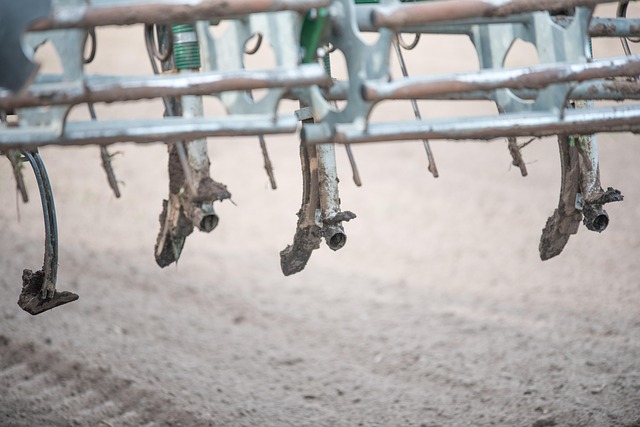Grandparent rights in Oregon are protected by state law, with the Oregon Family Law Code governing child custody and visitation. Grandparents seeking custody or increased visitation must navigate a structured process considering relationships and current parenting situations. Understanding custody laws is crucial for grandparents to participate actively in legal proceedings, advocate for their role, and maintain meaningful connections with grandchildren. Key concepts include legal custody, physical custody, grandparent rights, and substitution of care. Court decisions prioritize the child's best interests based on factors like age, parental relationships, stability, domestic violence history, substance abuse, cultural background, religious beliefs, and shared custody agreements. Grandparents' involvement is valuable if they have significantly engaged with their grandchildren or can offer unique support systems. Oregon's recent updates emphasize flexibility, fairness, and individualized decisions based on family circumstances. Understanding custody laws is vital for grandparents seeking access or legal custody to navigate complex procedures while meeting criteria that consider the child's best interests and existing relationships.
In Oregon, grandparent rights and custody arrangements are governed by specific legal guidelines. Understanding these rules is crucial for navigating family law, especially as custodial decisions involve complex factors. This comprehensive guide offers insights into Oregon’s custody laws, explaining key terms, different types of arrangements, and the influence of various factors on court rulings. Whether you’re a grandparent seeking access or a parent considering grandparent involvement, this article provides valuable knowledge in terms of understanding custody laws in Oregon.
- Grandparent Rights in Oregon: An Overview
- Legal Terms and Definitions Explained
- Types of Custody Arrangements
- Factors Influencing Custody Decisions
- Grandparents' Role in the Court Process
- Recent Changes in Oregon Custody Laws
Grandparent Rights in Oregon: An Overview

In Oregon, grandparent rights are recognized and protected under state law, offering a clear framework for understanding custody laws regarding grandparents. The Oregon Family Law Code outlines the legal principles that govern child custody and visitation, ensuring grandparent-child relationships are nurtured where possible. These laws aim to balance the best interests of the child with the important role grandparents can play in their lives.
Grandparents seeking custody or increased visitation rights must navigate a structured process. The court considers various factors, including the quality of the grandparent-child relationship, the current parenting situation, and any barriers to regular contact. By understanding these custody laws in Oregon, grandparents can actively participate in legal proceedings, advocate for their role in a child’s life, and work towards establishing or maintaining meaningful relationships with their grandchildren.
Legal Terms and Definitions Explained

When navigating Oregon’s custody guidelines for grandparents, it’s crucial to understand the legal terms and definitions involved. In the context of custody, key phrases like “legal custody” and “physical custody” refer to a grandparent’s rights and responsibilities regarding their grandchild’s care and decision-making. Legal custody involves making significant decisions about healthcare, education, and other aspects of a child’s welfare, while physical custody pertains to where the child lives and who they spend time with on a day-to-day basis.
Oregon’s custody laws also introduce terms like “grandparent rights” and “substitution of care,” which are essential for grandparents seeking custodial arrangements. Grandparent rights grant certain legal protections and opportunities for involvement in a grandchild’s life, especially when parents are unable or unwilling to provide care. Substitution of care involves courts considering alternatives to parental custody, recognizing the value of close family relationships, particularly for grandchildren who may have been removed from their primary caregivers due to unforeseen circumstances.
Types of Custody Arrangements

In Oregon, when it comes to grandparent custody arrangements, there are several types of legal options available under the state’s custody laws. These include joint legal custody, where both grandparents have equal decision-making rights regarding a child’s upbringing, and sole legal custody, where one grandparent is granted full authority. Physical custody refers to the actual time a grandparent cares for the child, which can vary from partial (a few days a week) to exclusive (full-time care).
Understanding Oregon’s custody laws is crucial when navigating grandparent custody cases. The state aims to ensure the best interests of the child are at the forefront of any decision. To achieve this, courts consider factors like the relationship between the grandparents and the child, each parent’s ability to provide a stable home, and the child’s preference (if old enough). This comprehensive approach helps in making informed decisions regarding grandparent custody arrangements in Oregon.
Factors Influencing Custody Decisions

When making custody decisions in Oregon, several factors come into play and are carefully considered by the courts. Understanding custody laws in Oregon involves recognizing that the primary concern is always the best interest of the child. This means that various elements are evaluated to ensure the child’s physical, emotional, and psychological needs are met. Key influences include the child’s age, their relationship with each parent and grandparent, the stability of each household, and any history of domestic violence or substance abuse.
The court will also consider the ability of grandparents to provide a nurturing and supportive environment, as well as their involvement in the child’s life before the custody dispute arose. Other relevant factors might be the child’s cultural background and religious beliefs, and whether shared custody arrangements can be agreed upon by all parties involved. These considerations collectively help shape the custody decision, with the ultimate goal of fostering a healthy and stable environment for the minor child.
Grandparents' Role in the Court Process

In Oregon, grandparents play a significant role in custody proceedings, especially when their grandchildren are involved. Understanding custody laws in Oregon is crucial for grandparents seeking legal rights or involvement in their grandchildren’s lives. The court process can be complex, but with the right knowledge, grandparents can advocate for their desired level of participation.
When navigating the court system, grandparents should familiarize themselves with the state’s custody guidelines, which outline factors considered when determining child custody and visitation rights. These guidelines emphasize the best interests of the child, taking into account the grandparent’s relationship with the minor, the stability of their home environment, and their ability to provide a nurturing and loving care. Grandparents’ involvement may be particularly beneficial if they have been significantly engaged in the child’s life or can offer unique support systems.
Recent Changes in Oregon Custody Laws

Oregon’s custody guidelines have undergone recent changes, reflecting a broader trend in family law toward recognizing the significant role grandparents play in their grandchildren’s lives. These updates aim to provide more flexibility and fairness when determining grandparent visitation and custody rights. Understanding custody laws in Oregon is essential for grandparents seeking access or legal custody of their grandchildren, as it involves navigating complex legal procedures and meeting specific criteria.
The revised laws consider various factors, including the child’s best interests, the existing relationship between the grandchild and grandparent, and any changes in family dynamics. This shift towards a more individualized approach allows courts to make decisions tailored to each family’s unique circumstances. By promoting understanding custody laws in Oregon, grandparents can actively participate in legal processes, ensuring their rights and contributions are recognized within the framework of modern family law.














